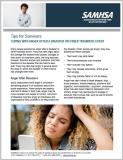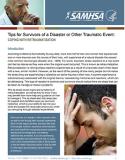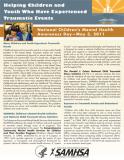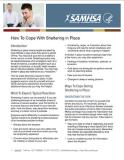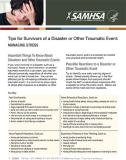
This fact sheet offers tips for preventing and managing stress when dealing with the effects of trauma, mass violence, or terrorism. It lists tips for relieving stress and seeking professional help.
Units per Product
Download
Managing Stress
File Type: PDF
File Size: 1.81 MB


